Context
Farewill is the UKs no1 online will writing service. But not everyone can write a simple online will, many of us need something more. If you have children from multiple relationships, own a business or have overseas assets, a simple will won’t cut it.
To offer more complex wills, Farewill has a telephone service where you can write your will over the phone with a specialist and add extras such as Trusts or business assets.
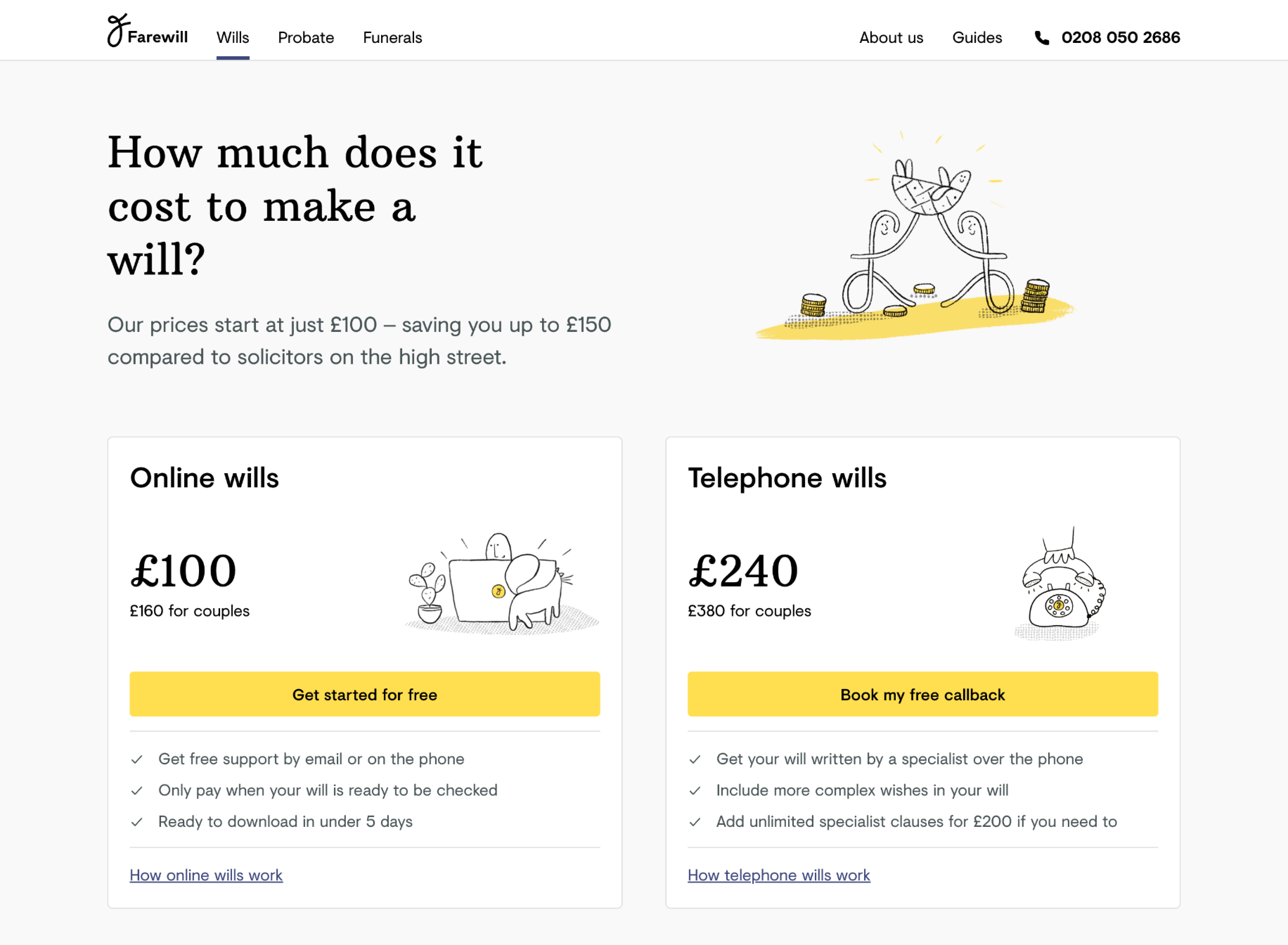
Our telephone service experience wasn't converting as well as online
I began by mapping out the user journeys for both the online and telephone services.
Our telephone service was not well promoted and has lots of drop outs. Our online service converts really well, but lots of wills fail specialist checks and have to be rewritten or signposted to the telephone service.
I was left curious how the services could be presented as equally viable, vs treating the online will as the primary service and the telephone service as the ‘drop-out’, second class experience.
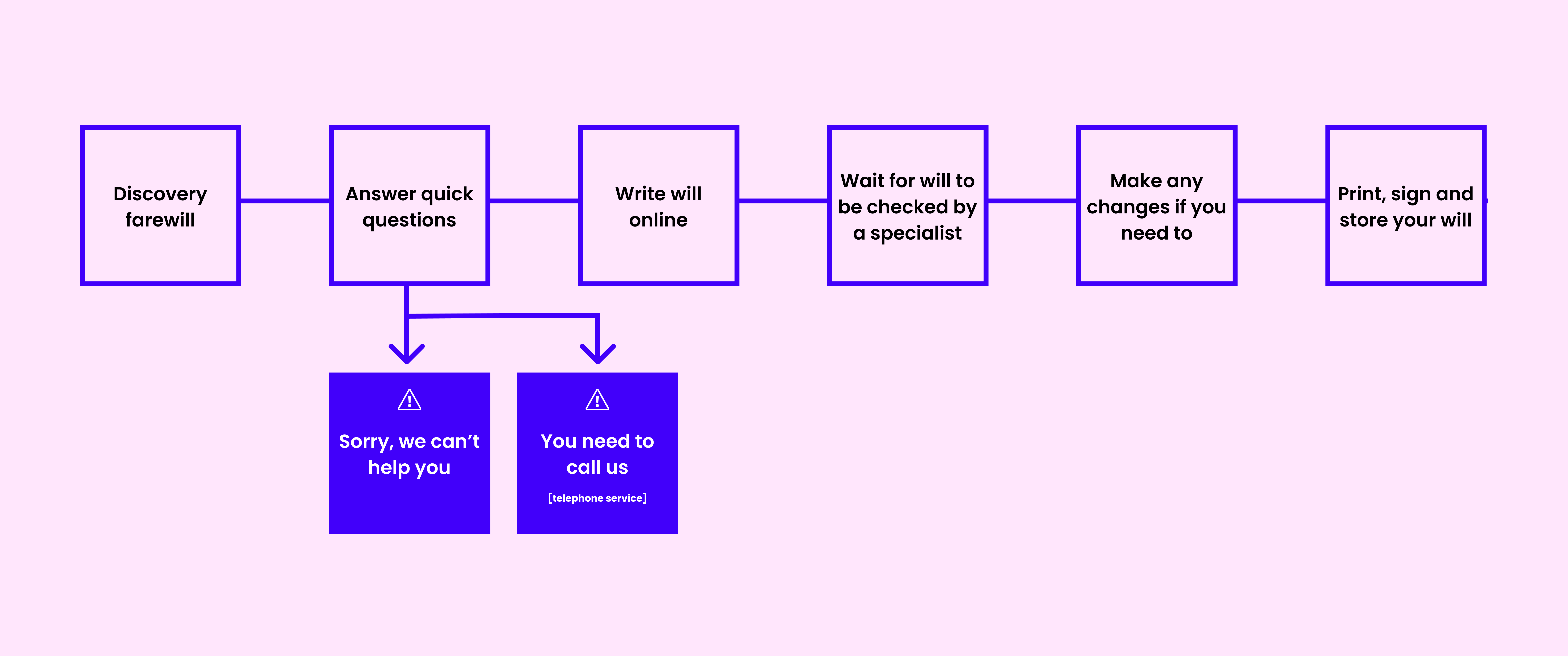
User research: Getting to know older audiences
I began by doing some research to understand this older user group Farewell were trying to target. 75% of will writers are aged 55+, but 75% of our market were aged 30-55. So we had a lot of work to do to understand this group.
“I don't think saying this can all be rushed through in 15 minutes is a good look”
This group, unlike younger customers, had first hand experience dealing with the death of the loved one. They knew how important a will was and wanted to make sure they did it right. This meant that trust in their will-writer were paramount, and there were lots of ways our competitors were able to do a better job than us.
Based on the research I devised a 3-part strategy to start writing more complex wills for these customers.
1. Building trust by demonstrating our range through productisation
Through testing we saw that by presenting a range of products, we demonstrated we “do the full gamut”, rather than just simple online wills. Instead of simply being online and telephone, the products showed what our value proposition was.
We also knew from research that people’s perception of their complexity doesn’t always reflect the reality, so we wanted to give people the option to make that decision on their own.
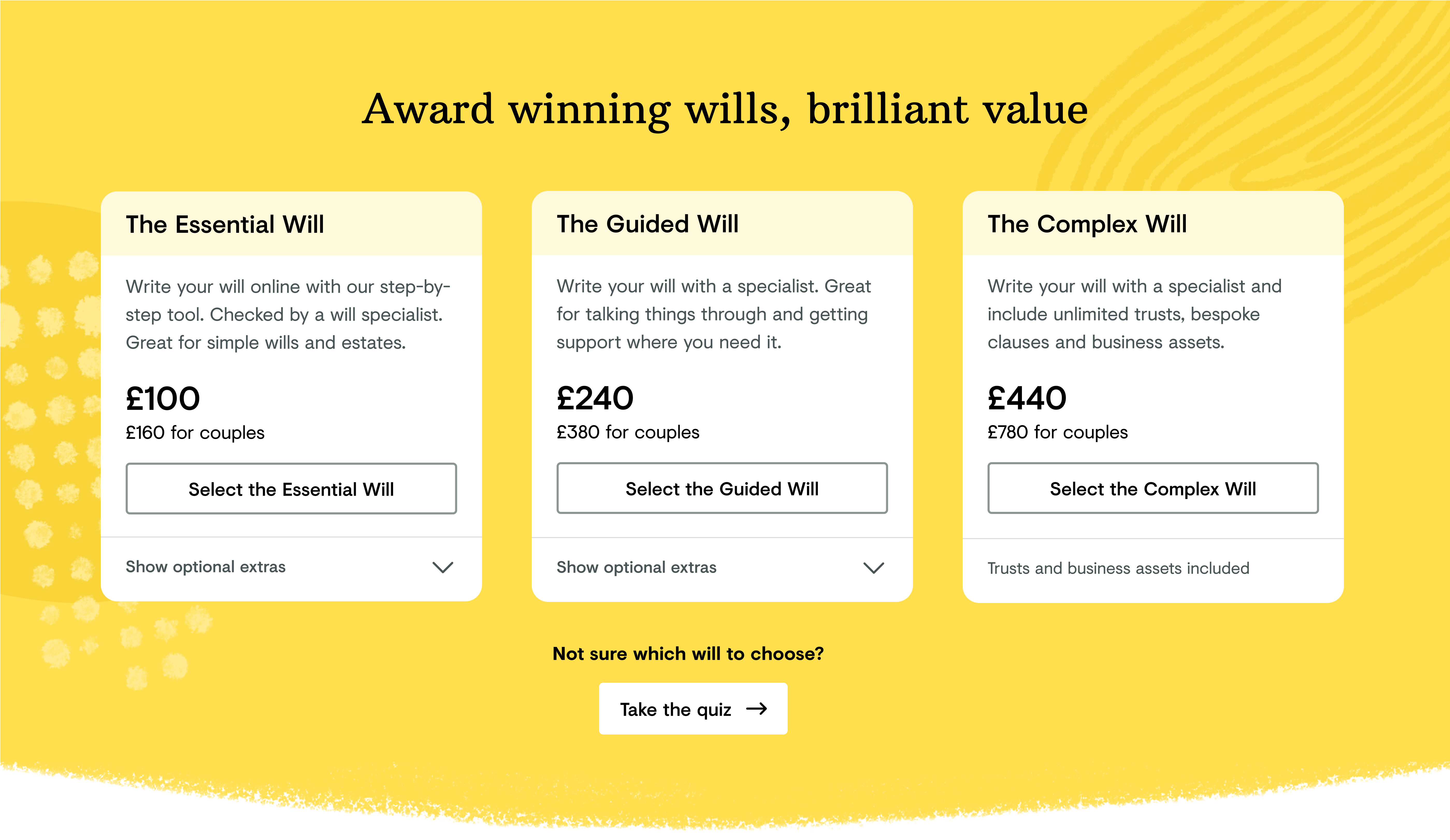
2. Updating our onboarding quiz to identify complex needs
We needed to add more questions to our ‘get started’ quiz to work out if someone needed a complex will or not. But the risk was adding more questions to the flow, which currently stood at 5 simple questions, would dent conversion.
This was the most complex part of the project. The questions needed to be easy to answer, while adhering to legal constraints. Working closely with our head lawyer, we iterated and tested on the questions countless times.
Conversion on this flow maintained at 96% after release, despite adding 8 new pages.
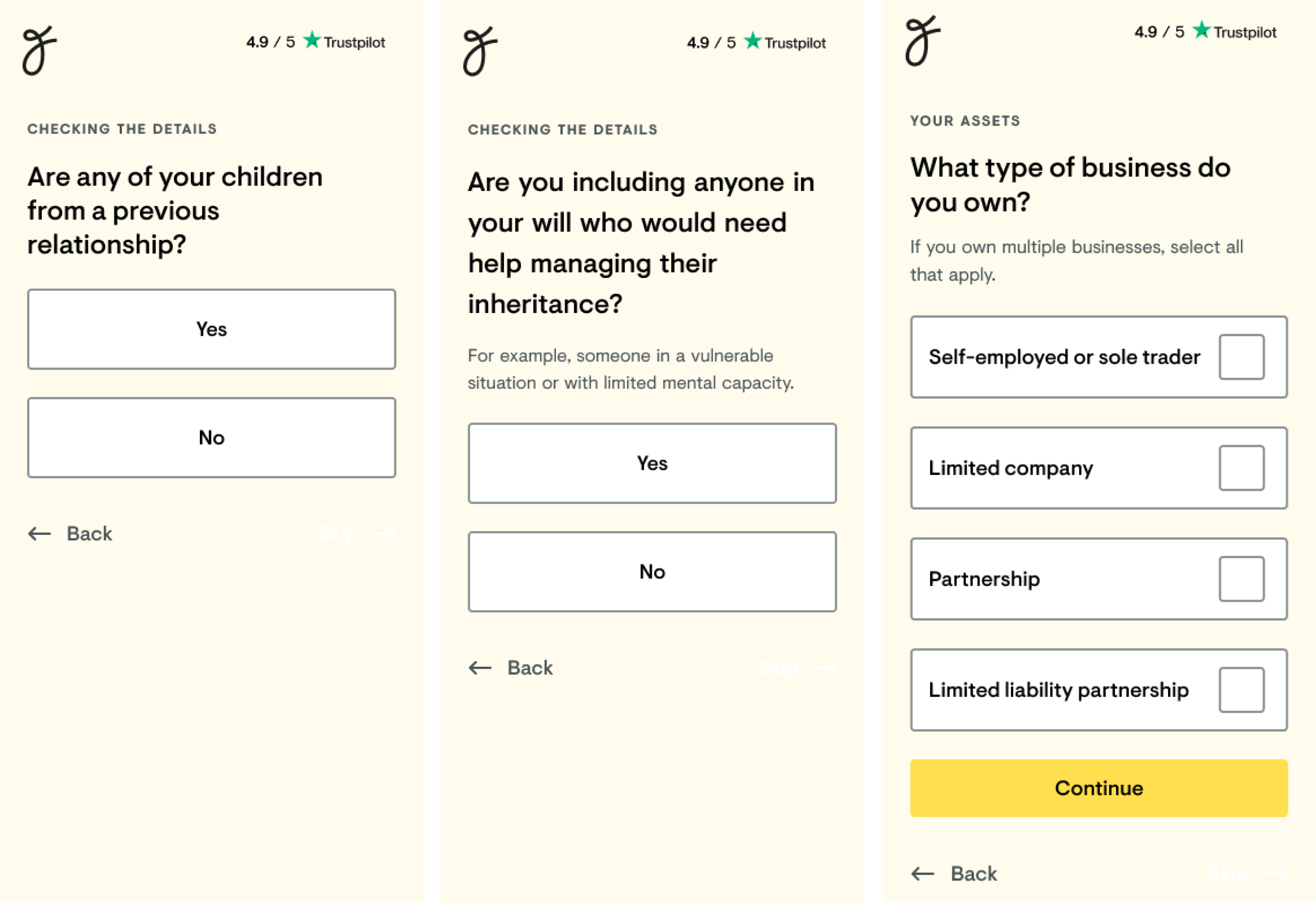
3. Reducing dropout rates in our phone service
It’s one thing to get someone to choose Farewills service and get on the phone. But that doesn’t mean they will complete the whole process with us.
I used existing data to map the drop out points in the journey and identified 2 key areas for improvement.

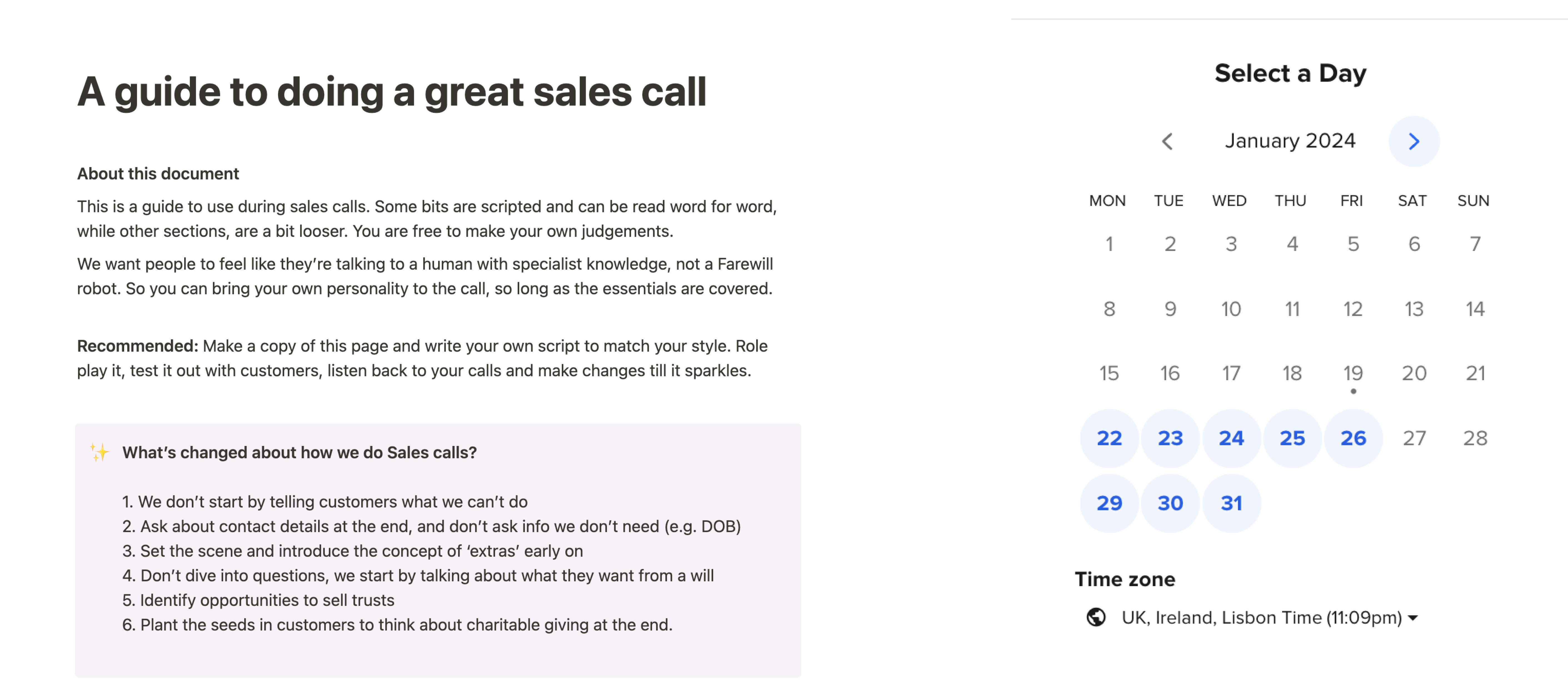
Outcome
In the first 3 weeks we increased the number of complex wills sold by 37%.
Onboarding questions told specialists a lot more about the customer, without reducing conversion.
Due to low staffing in telephone wills, we had to pause the new service until we’d built out the team and could handle the increased demand.